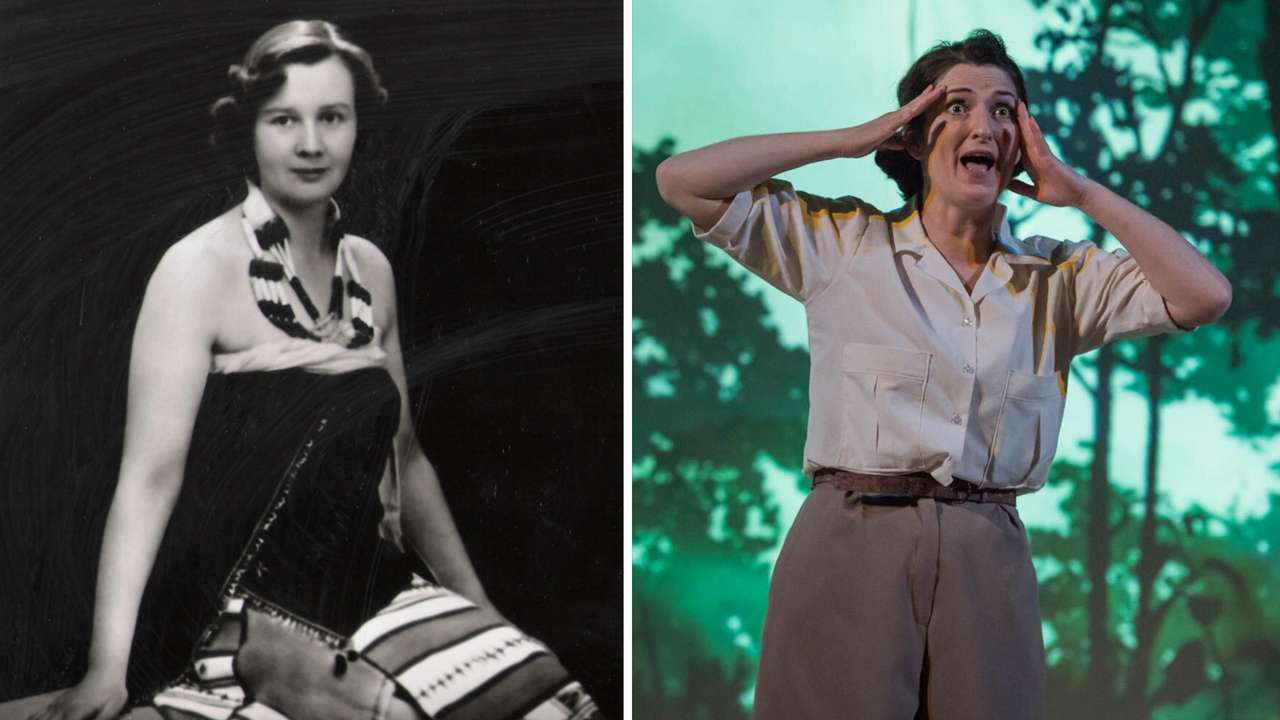
Ursula Graham Bower, a young English woman in her 20s, came to Nagaland for the first time in 1937 and fell in love with the Naga Hills. She stayed until 1946, and even prepared and led a guerrilla unit of local Zeme Nagas to resist the Japanese advancing from Burma during World War 2.
Bower’s story was brought to the land where it all began 80 years ago earlier this month when a play titled ‘Ursula - Queen of the Jungle’ was performed in Laisong village and Haflong town in Assam, and this week, at the Indian Habitat Centre in Delhi.
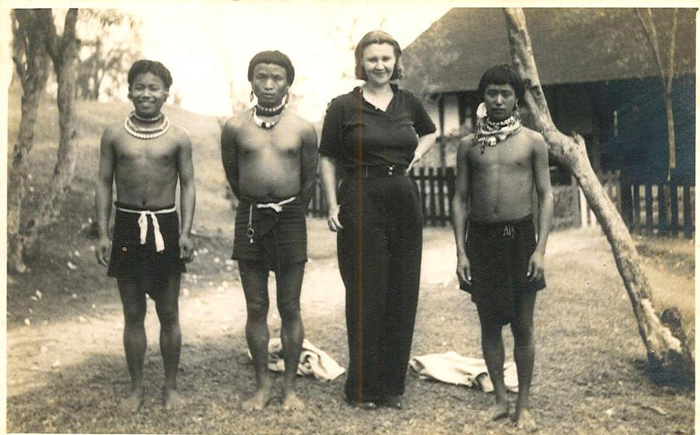
Ursula Graham Bower with her army in Lumding, Assam
The idea for the play originated three decades ago when Ursula's daughter, Catriona Child, met writer-director Chris Eldon Lee, then working with BBC Radio, at a book launch in Shrewsbury, UK.
“We got talking about Ursula and I recorded it because the story appeared interesting to me,” recalls Lee who jokingly suggested to Child that they should make it into a play. In 1989, a year after Ursula died, Lee produced a documentary on her for BBC Radio, and a few years later, wrote the play on her life. But since they couldn’t find the actors to play the Naga characters, the play lay forgotten. It was performed just once, in 1997, at a school in Shrewsbury, where the drama teacher had come across the play and got his students to mount it. Child was among the audience at that performance.
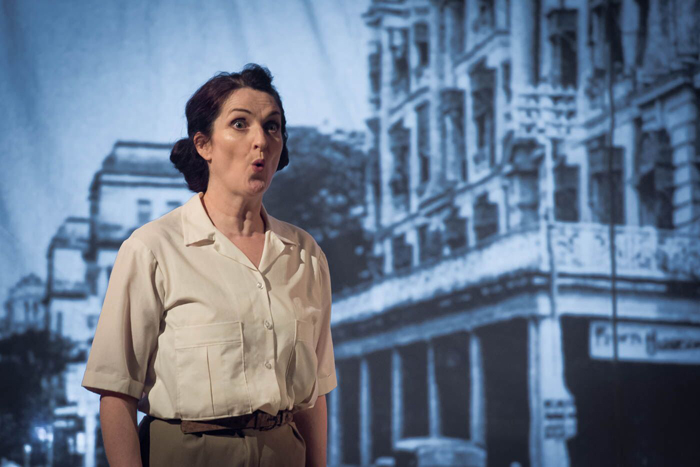
Joanna Purslow as Ursula Graham Bower (Photo credits: Mike Ashton)
It was revived again 18 months ago when one of Lee’s theatre projects based on Shakespeare’s wife fell through and Joanna Purslow, the actor who plays Ursula, suggested he rework the play. “We were in a restaurant when the subject of the Nagas came up and we decided that our next play would be on Ursula. We decided it would be a mono act and I started rewriting it,” says Lee. The rewriting took six months but it was just as hard to get actors to play the Naga parts, especially Namkiabuing of Impoi, Bower's interpreter, bodyguard and right-hand man.
“Some of the characters such as Catriona’s, who tells the tale, are very straightforward. It was easy to capture her since I know her. I had heard recordings of Ursula from her old age and knew she spoke in an aristocratic manner, like the queen. I tried to make her typical of her time. But the most difficult character to portray was Namkiabuing since I had never met a Naga. To get it right, I got in touch with a Naga over Skype and realised how different they were from my perception from them,” says Purslow. The challenge, she says, was to establish that he was a humorous man, to make him likeable without caricaturising. “We wanted the audience to laugh with him not at him. And the audience did that - they laughed at themselves as seen through Naga eyes,” adds Lee.
It was equally important to get the references to the period, the people and culture right. Luckily, Bower had had an anthropologist’s eye and had captured the essence of the Naga Hills in pictures and short clippings beside writing about it in her book ‘Naga Path’.
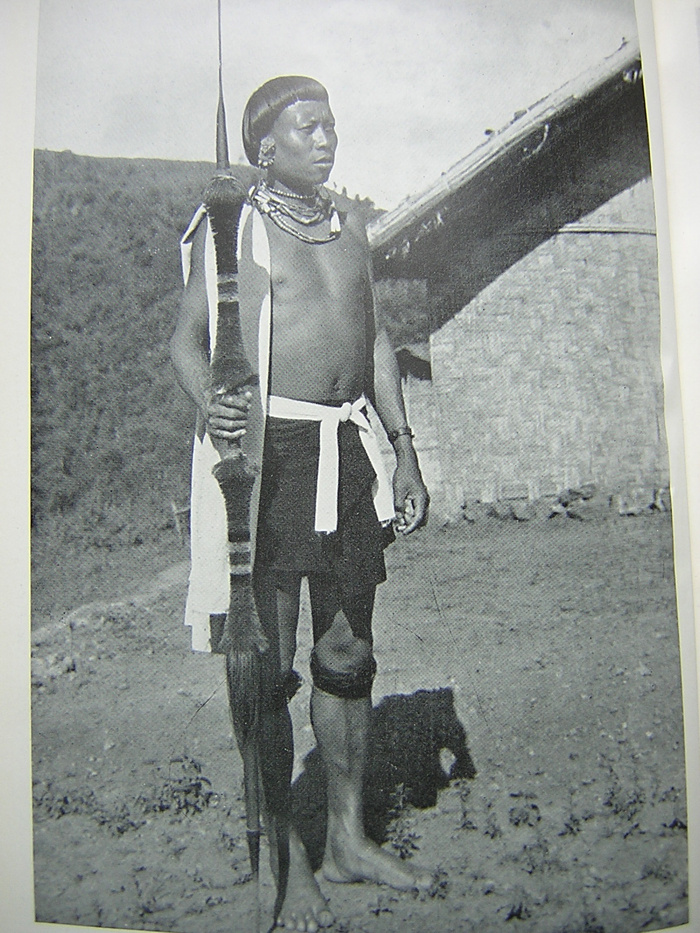
In photo: Namkiabuing. He was Ursula Graham Bower's interpreter, bodyguard and right-hand man.
Music is an important part of the play but Lee only had an old recorded tape for reference while working on the music.
“In the 1960s, some Nagas had visited Ursula in Scotland and there, had recorded a few of their songs on a tape, which remarkably survived. That was the source of the music in the play,” says Lee. Mary Keith and Sally Tonge, who share the music credits for ‘Ursula – Queen of the Jungle’ got the tunes from that recording but had trouble transcribing the words. “It was tricky, so we played the tunes on the flute, chimes and banjo*. As for the song, I didn’t know the words and it was hard for me to even try saying them correctly. So I just focused on the sound and sang without words,” explains Keith. The effect is fairly authentic - it appears as if the Nagas were singing their traditional songs.
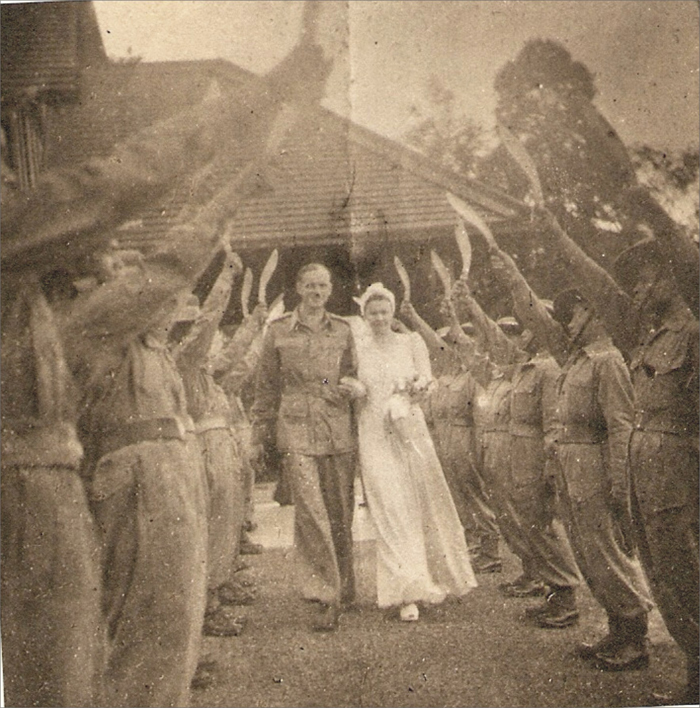
A picture of Ursula Graham Bower and Tim Betts from their wedding which took place in Shillong in 1945.
It was Child, of course, who made it all possible - from sourcing the material to securing the permissions to perform in the villages of Assam. “I had been hearing the stories since I was a child but it had seemed like a fairy tale until some Nagas came to visit my sister and me at our boarding school. It is then that it became real to me,” says Child laughingly. Over the years she kept in touch with the Nagas through letters, like her mother.
“One of them wrote to me that "your mother was known as the ‘Naga Queen’ and you should come back and see us as a ‘Naga Princess’. Again, it was like a fairy tale but very romantic. But I couldn’t visit Nagaland until 2000 since there was so much disturbance and foreigners weren’t allowed to visit,” she adds Child. She went back in 2003 and more frequently since 2005, when she settled down in Delhi.
‘Ursula – Queen of the Jungle’ was performed on stage for the first time in May last year in Shrewsbury and again at the Edinburgh Festival in August. The final leg was in India, where there were four shows - a total of 25. But this might be the end of road for ‘Ursula’, says Lee.
“We would love to but we can’t afford to… we have already done five performances in Shrewsbury. We would like to come to India but it is really expensive and we have to move on to other projects. It is quite likely that the play won’t be performed again unless we get an invite,” says Lee who sponsored the India tour himself and didn’t make any money as all shows were free. “Ticketing would have acted as a deterrent and we wanted the story to reach people here,” he says.
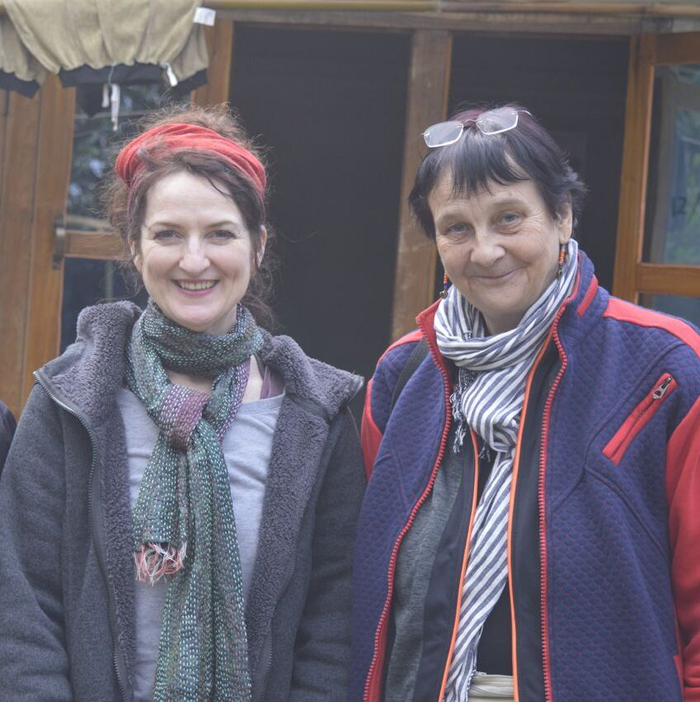
Ursula's daughter, Catriona Child along with actress Joanna Purslow
Child is optimistic the play will have a ripple effect. “The area has the potential for eco-tourism. At present it is isolated, the roads are poor. But if somebody wants to explore, my mother’s story provides a potential hook to plan an itinerary.”